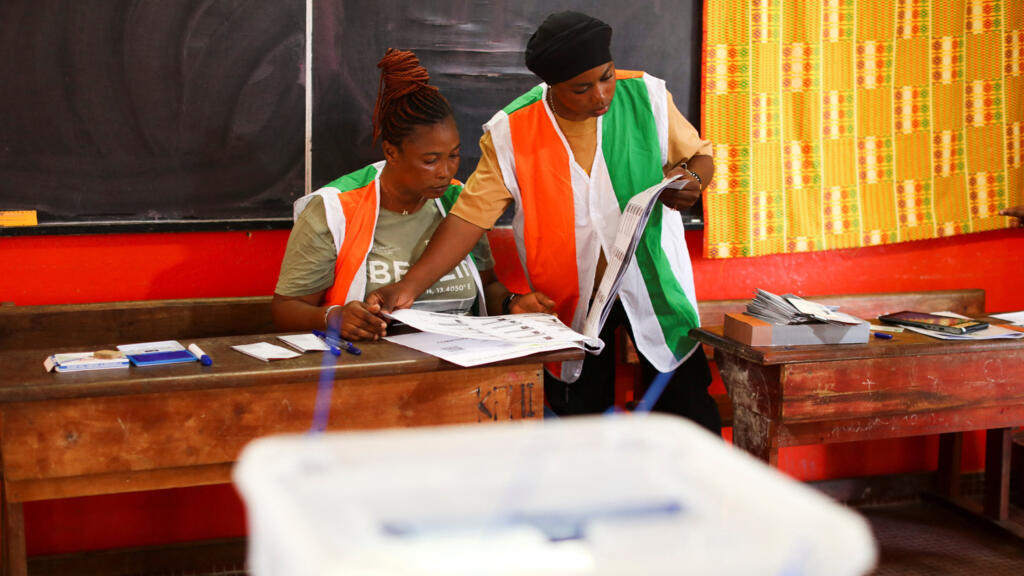
Nearly nine million Ivorians are eligible to vote on Saturday to elect their new president among five candidates, including incumbent head of state Alassane Ouattara, who is seeking a fourth term in office. A key issue is voter turnout.
Voters are choosing between incumbent Alassane Ouattara, Jean-Louis Billon, Simone Ehivet, former wife of Laurent Gbagbo, Ahoua Don Mello and Henriette Lagou.
The two main opposition leaders, Laurent Gbagbo and Tidjane Thiam, are absent from the race after their candidacies were rejected.
Their exclusion has fuelled tensions across the country. A protest called by the Front commun – a platform bringing together the Democratic Party of Cote d'Ivoire (PDCI) and the African Peoples’ Party-Ivory Coast (PPA-CI) – was banned and dispersed by security forces.
According to the Interior Ministry, more than 700 people have been arrested and over 30 protesters handed prison sentences in recent weeks.
Turnout will be a key factor. In 2020, participation stood at 53.9 percent.
Roads were cut off in some parts of the country's south and west but no disturbances had been reported at polling stations by mid afternoon.
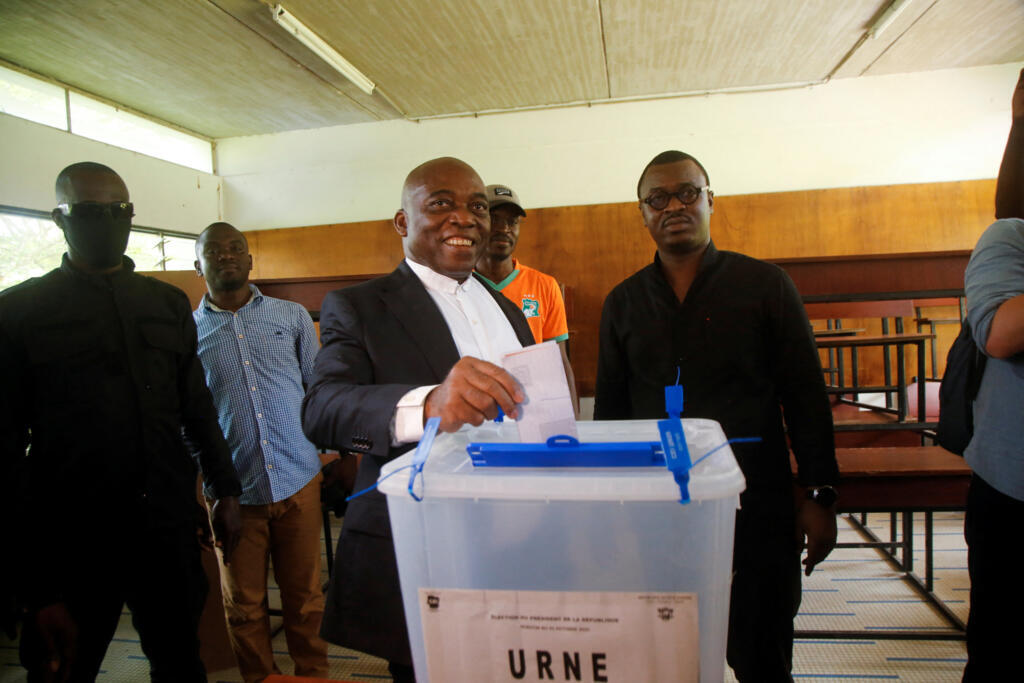
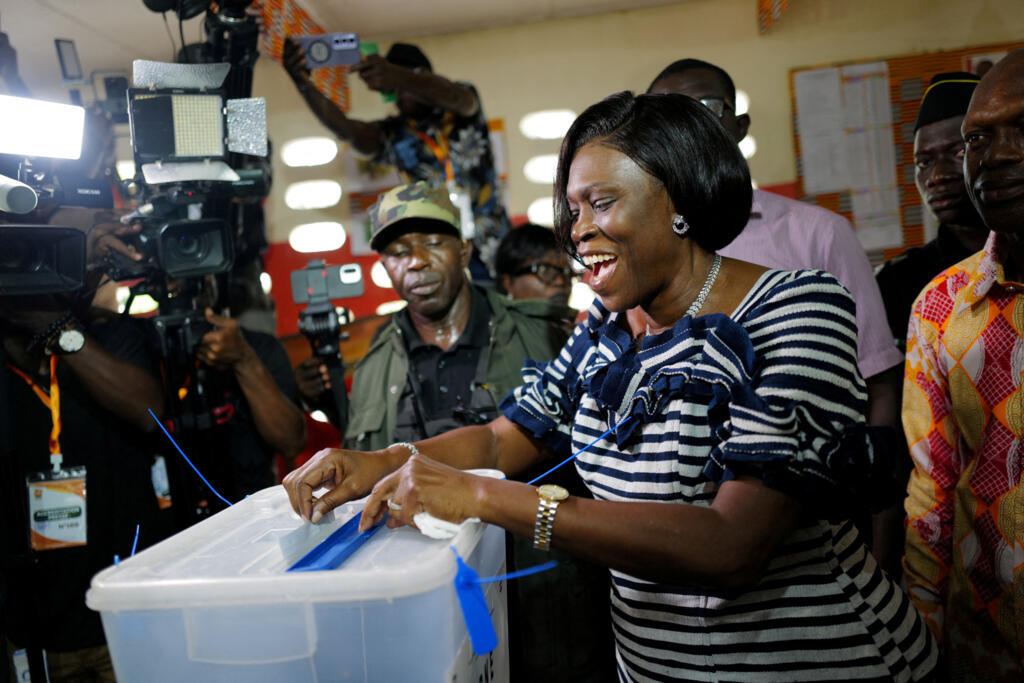
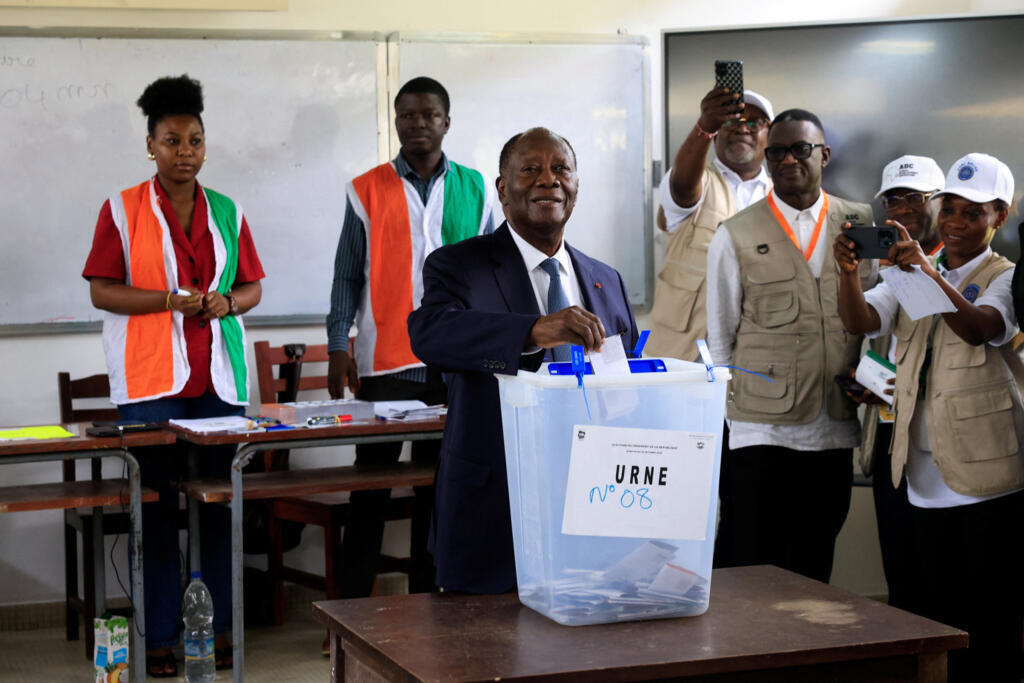
Women march into the fray but power still lags in Côte d’Ivoire
Slow start in Bonoua
Reporting from the traditional opposition stronghold of Bonoua, some 60 kilometres east of Abidjan, RFI's correspondents found several polling stations slow to open.
At the MPP Benoît I polling centre, early voters were surprised to find empty rooms at the scheduled start of voting, no ballot boxes, booths or papers in sight.
“I have to go to work after voting,” one man said. “That’s why I came early, but they haven’t even set up the materials yet.”
Delays in the delivery of voting materials caused disruptions of up to 90 minutes, notably at the Christ-Roi College at the entrance to the town.
“It’s my first time voting,” said a young woman. “We talked about it a bit at school. It’s important – it’s part of life. You have to fulfil your duty calmly. I’ve done mine, but turnout isn’t great so far.”
Bonoua was rocked by violent protests on 13 October that left one young man dead after police dispersed opposition demonstrators. While calm has since returned, many residents of the Nouveau Goudron district say they have no intention of voting.
“We don’t trust the elections. We don’t feel represented,” one resident said.
Security forces are stationed at key junctions across the town, helmets and shields within reach. At midday, however, the situation remained calm.
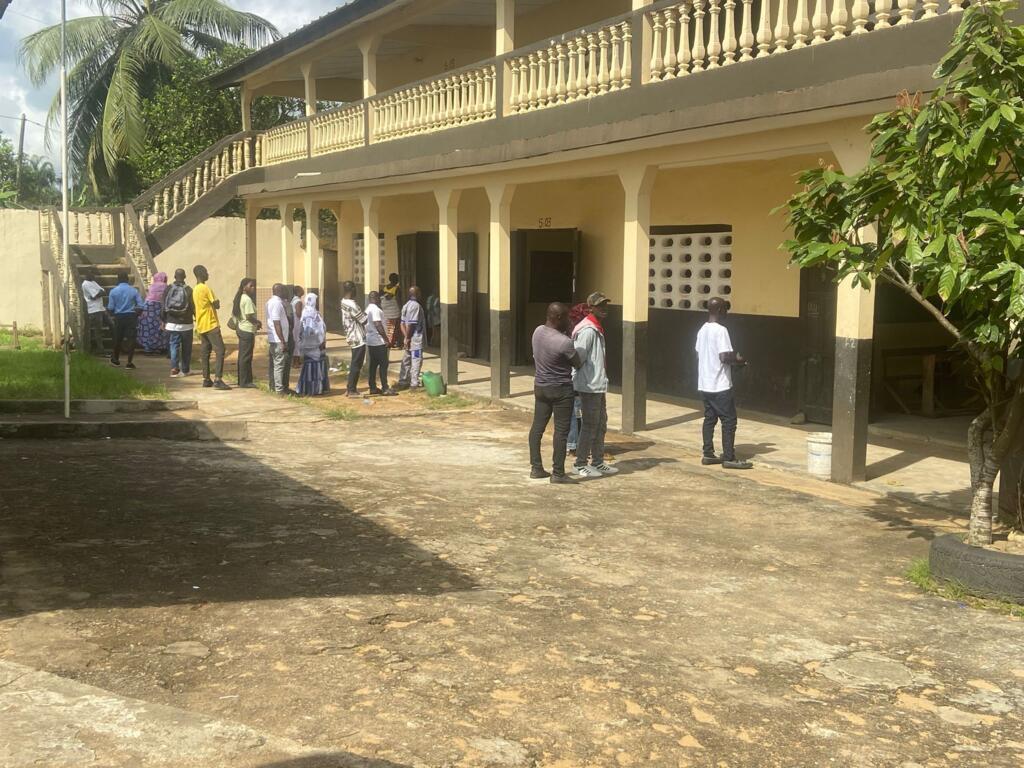
Côte d'Ivoire elections 2025 - Ouattara's call to youth
Voting in Abidjan
In Abidjan, voting began smoothly in most polling stations visited by RFI's correspondent Bineta Diagne. In the working class distrcit of Yopougon, turnout was initially low but the process ran smoothly.
One school polling station used a biometric system whereby voters place their finger on a tablet to generate facial recognition.
"The system reassures me,” said young entrepreneur Modeste.
Each voter receives a single ballot paper featuring photos of all five candidates, marks their choice and places it in a sealed box. Civil society observers reported only minor incidents in the Goh region and near Alépé – none serious enough to disrupt the vote.
At the Abobo school in Abidjan, where around 3,200 voters are registered, polling opened on time. Small queues formed gradually. Some voters were also able to collect new voter cards on site by presenting ID.
“I came to exercise my civic right,” said Kadidida, smiling as she left the polling station.
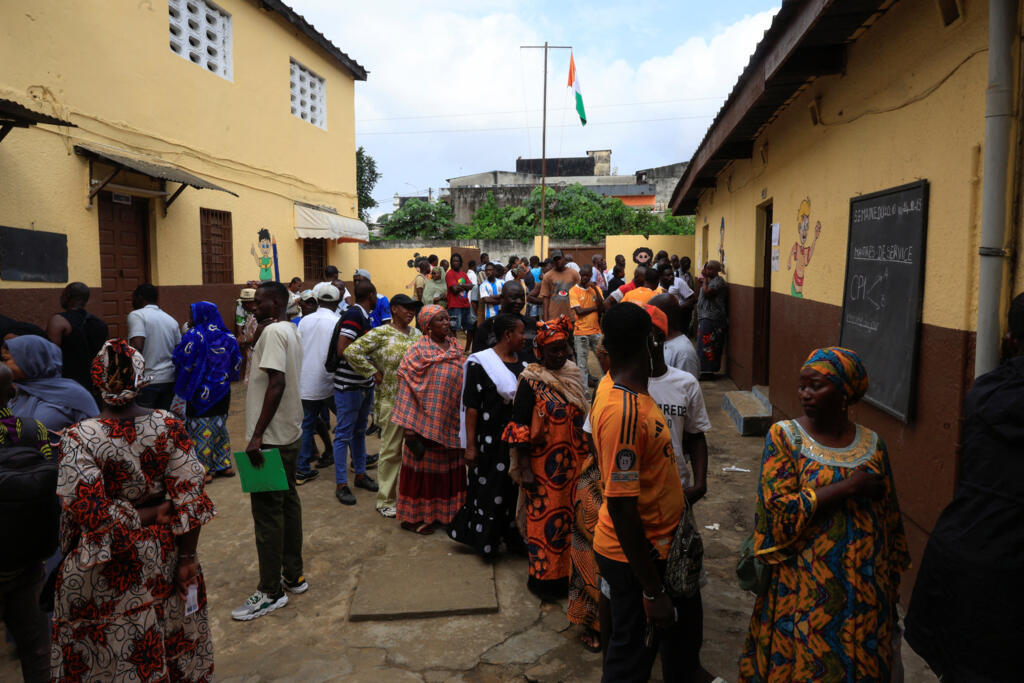
Tight security
According to our Abidjan correspondent, 44,000 police and gendarmes have been deployed to secure the country’s 25,000 polling stations and prevent unrest.
The exclusion of Gbagbo and Thiam have triggered protests, banned by authorities and met with force. More than 700 arrests have been reported, and at least four people – including a gendarme – have died during recent demonstrations.
Human rights organisations condemned the protest bans in a joint statement on Friday, calling them a violation of fundamental freedoms.
In the political capital Yamoussoukro, a night-time curfew (10 p.m. to 6 a.m.) remains in place until Sunday morning after disturbances earlier in the week – including the ransacking of a local electoral commission office on Monday.
The curfew was lifted at dawn on Saturday and RFI's reporters said the city was subdued.
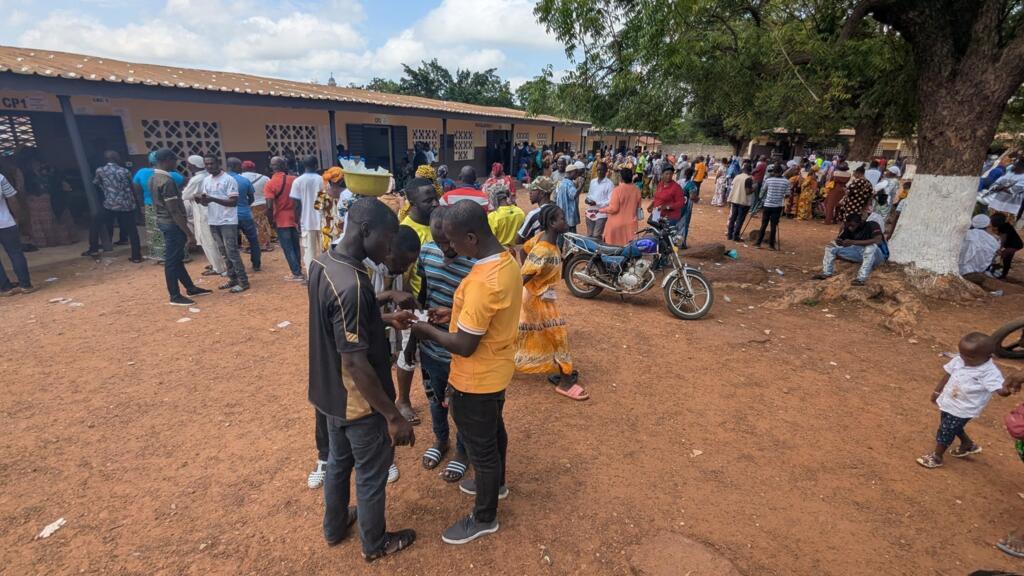
Turnout the main test
With the two largest parties – the PPA-CI and PDCI – excluded from the contest and refusing to give voting instructions, observers say the main issue is whether Ivorians turn out to vote.
“Voter participation remains relatively low,” a member of the Independent Electoral Commission (CEI) told RFI. “It peaked at 81 percent in 2010, but fell to 52 percent in 2015 and 53 percent in 2020.”
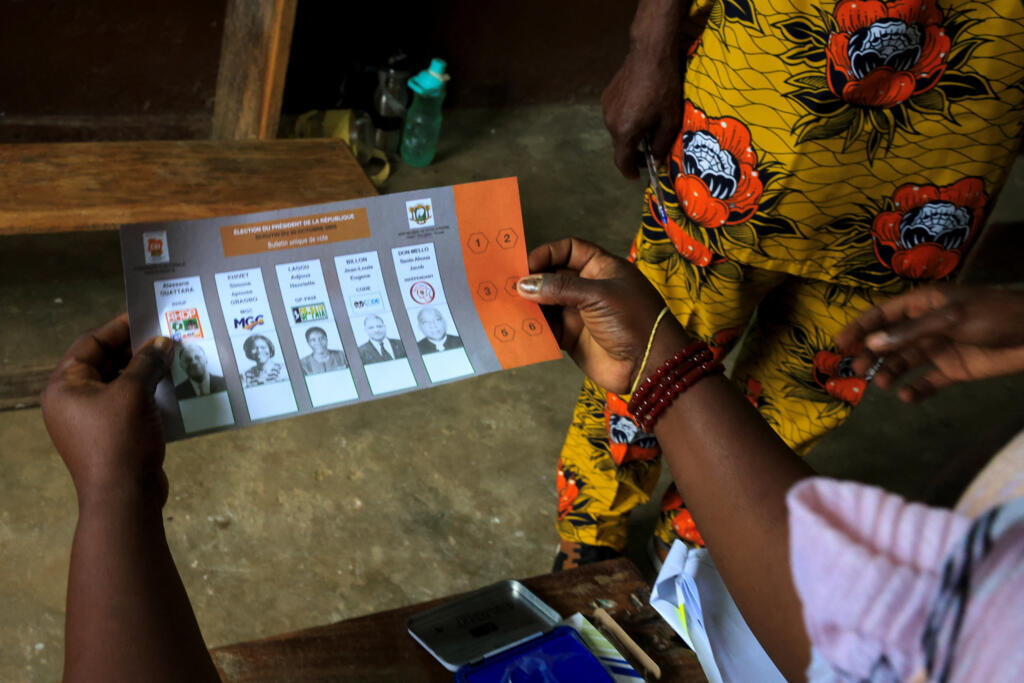
Sociologist Séverin Kouamé notes “a sense of fatigue and disillusionment among voters”.
All five candidates have called on their supporters to come out and fulfil their civic duty.







